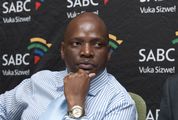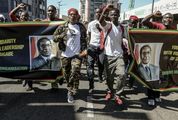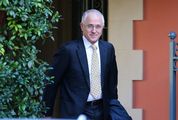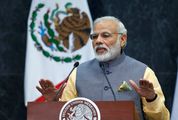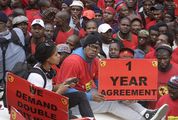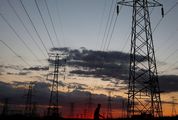INTERNATIONAL Relations and Co-operation Minister Maite Nkoana-Mashabane’s interview on Al Jazeera last week has become a talking point because of her outlandish responses to questions about the state of the country.
SA’s diplomat-in-chief came across as anything but diplomatic. She was defensive, combative and belligerent, did not answer the questions properly, and some of her responses were positively bizarre.
Unfortunately, she will be known as the minister with a hole in her head after she chose to talk about a childhood injury instead of explaining SA’s foreign policy.
In the long run, a disappointing interview probably doesn’t make much difference, but the garbled message from Nkoana-Mashabane does illustrate something deeper: SA has a problem on the foreign relations front.
The root of the problem is related to SA’s declining economic prowess. When President Jacob Zuma was first elected, SA was the biggest economy on the continent. The reasons and calculations are complicated, but whatever the case, the fact is that SA is now the third-biggest in Africa. Much of that decline is the consequence of having a floating currency, but the bragging rights of being the continent’s largest are now lost.
The second problem is that SA’s recent foreign policy pivot was to the Brics grouping — Brazil, Russia, India and China. There were good reasons SA was, from the start, an uncomfortable addition to the group. But now things have changed considerably. That grouping is now, predictably, looking more like a foreign policy hindrance than a help.
Brazil is in deep political and economic crisis. Russia’s economic dependence on oil has proved onerous, given the collapse in the price. In addition, Moscow is a pariah to many, following its military intervention in Ukraine. India, at least, is holding its corner, and China remains a formidable force, but its economy is growing more slowly than at any time in the previous two decades.
SA says its Brics commitment in no way detracts from its other ties, particularly in Africa. But that is easier said than done.
Trade relations are fraying in the face of the scrapping of bilateral investment treaties, and tourism has suffered from confused visa requirements.
Mixed messages are not helped by a minister appearing to be out of her depth.
Often, the most fraught relations are smoothed over with the right tone and turn of phrase. Diplomats go out of their way to disagree or condemn with a silver tongue. Nkoana-Mashabane needs to learn the art of doing that.
Although Pretoria is increasingly become less important globally, sometimes it does manage to punch above its weight, so to speak.
SA can claim one major multilateral victory; its role in helping to ensure the success of the UN Framework Convention on Climate Change adopted in Paris in 2015. This conference followed SA’s hosting of COP17 in Durban in 2011, which is where the targets were set out originally.
Yet, on other fronts, it’s hard to see progress and easy to see decline. SA’s relations with the rest of Africa are muddled, to put it politely. A case in point is the embarrassing events around Sudanese President Omar al-Bashir’s visit last year, when senior state officials were willing to ignore court orders and not live up to SA’s obligations under international law by hosting Bashir, who is wanted on genocide charges.
For years, SA’s foreign policy effort was rooted in our own negotiated political settlement. The idea was to present the country as a practical, nonpartisan problem-solver that could take on any issue and find a reasonable solution.
Under Nkoana-Mashabane, that approach has now been truly jettisoned.
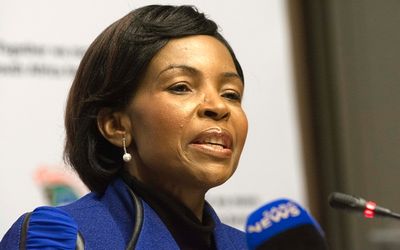
Maite Nkoana-Mashabane. Picture: TREVOR SAMSON
INTERNATIONAL Relations and Co-operation Minister Maite Nkoana-Mashabane’s interview on Al Jazeera last week has become a talking point because of her outlandish responses to questions about the state of the country.
SA’s diplomat-in-chief came across as anything but diplomatic. She was defensive, combative and belligerent, did not answer the questions properly, and some of her responses were positively bizarre.
Unfortunately, she will be known as the minister with a hole in her head after she chose to talk about a childhood injury instead of explaining SA’s foreign policy.
In the long run, a disappointing interview probably doesn’t make much difference, but the garbled message from Nkoana-Mashabane does illustrate something deeper: SA has a problem on the foreign relations front.
The root of the problem is related to SA’s declining economic prowess. When President Jacob Zuma was first elected, SA was the biggest economy on the continent. The reasons and calculations are complicated, but whatever the case, the fact is that SA is now the third-biggest in Africa. Much of that decline is the consequence of having a floating currency, but the bragging rights of being the continent’s largest are now lost.
The second problem is that SA’s recent foreign policy pivot was to the Brics grouping — Brazil, Russia, India and China. There were good reasons SA was, from the start, an uncomfortable addition to the group. But now things have changed considerably. That grouping is now, predictably, looking more like a foreign policy hindrance than a help.
Brazil is in deep political and economic crisis. Russia’s economic dependence on oil has proved onerous, given the collapse in the price. In addition, Moscow is a pariah to many, following its military intervention in Ukraine. India, at least, is holding its corner, and China remains a formidable force, but its economy is growing more slowly than at any time in the previous two decades.
SA says its Brics commitment in no way detracts from its other ties, particularly in Africa. But that is easier said than done.
Trade relations are fraying in the face of the scrapping of bilateral investment treaties, and tourism has suffered from confused visa requirements.
Mixed messages are not helped by a minister appearing to be out of her depth.
Often, the most fraught relations are smoothed over with the right tone and turn of phrase. Diplomats go out of their way to disagree or condemn with a silver tongue. Nkoana-Mashabane needs to learn the art of doing that.
Although Pretoria is increasingly become less important globally, sometimes it does manage to punch above its weight, so to speak.
SA can claim one major multilateral victory; its role in helping to ensure the success of the UN Framework Convention on Climate Change adopted in Paris in 2015. This conference followed SA’s hosting of COP17 in Durban in 2011, which is where the targets were set out originally.
Yet, on other fronts, it’s hard to see progress and easy to see decline. SA’s relations with the rest of Africa are muddled, to put it politely. A case in point is the embarrassing events around Sudanese President Omar al-Bashir’s visit last year, when senior state officials were willing to ignore court orders and not live up to SA’s obligations under international law by hosting Bashir, who is wanted on genocide charges.
For years, SA’s foreign policy effort was rooted in our own negotiated political settlement. The idea was to present the country as a practical, nonpartisan problem-solver that could take on any issue and find a reasonable solution.
Under Nkoana-Mashabane, that approach has now been truly jettisoned.


